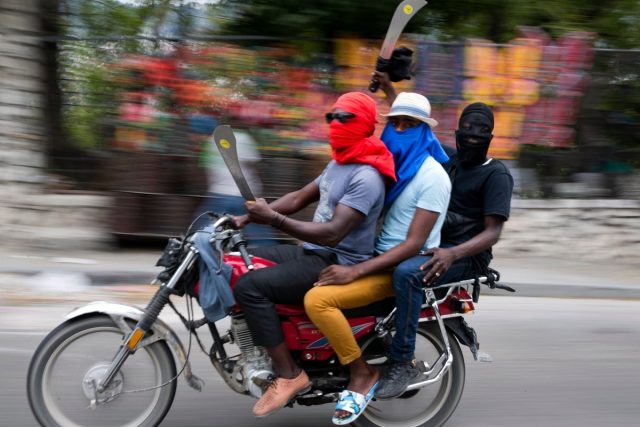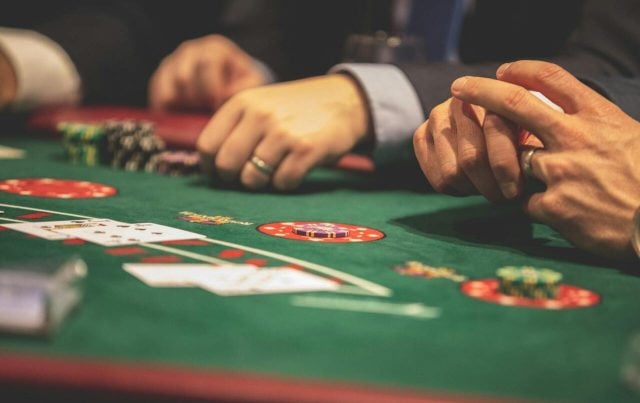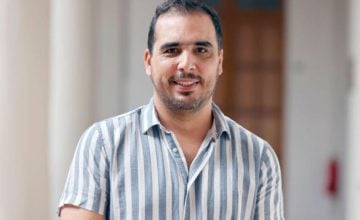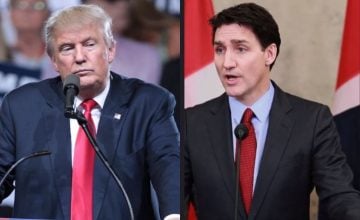Haiti remains in a spiral of crisis that now has an aggravating factor: the lack of fuel throughout the country. In the last week, the fuel shortage has sparked new protests, while illegal armed groups have taken over an oil terminal and the Dominican Republic strengthens its border to prevent gasoline smuggling.
In Port-au-Prince almost all gas stations are closed. The newspaper Le Nouvelliste details that the situation is similar in the interior of the country and could worsen after armed gangs, grouped in the so-called ‘G9 coalition’, prevented access to the Varreux terminal.
These facilities are strategic to guarantee the supply of fuel in Haiti, since it is the largest fuel storage point. The blockade of this terminal directly affects the population, the telecommunications companies (which depend on petroleum products for their operation) and the hospitals, which require diesel to keep the electricity generator plants active, explains a report by Nazareth Balbás for RT.
Although the Antillean country has never enjoyed political, social, or economic stability, the recent assassination of former President Jovenel Moïse aggravated the situation, especially because gang members such as Jimmy Chérizier, alias ‘Barbecue’, have taken advantage of the situation to ‘gain ground’ through kidnappings and violence, to the point of demanding the resignation of the current prime minister, Ariel Henry, in exchange for unlocking the Varreux terminal.
The rise of the criminal gangs
The assassination of Moïse was a turning point in Haiti. Not only because the circumstances of his murder – perpetrated by a Colombian mercenary commando – have not yet been clarified, but because it paralyzed the electoral route in the country and ended up plunging it into chaos.
In this scenario, armed gangs, such as the ‘G9 coalition’ led by former police officer Chérizier, have deployed themselves in the territory, at their ease. They kidnap, gain territories, impose their law and now, even take over key fuel supply facilities.
‘Barbecue’ is identified as one of the most powerful criminals because he managed to bring together nine of the most dangerous gangs in Port-au-Prince. According to Insight Crime, in the past he collaborated with the police and with the current ruling party Parti Haïtien Tèt Kale – PHTK, but now «he would be seeking to take advantage of the power ‘vacuum’ left by the assassination of former president Jovenel Moïse».
The former police officer was fired in 2018 for his alleged participation in the La Saline Massacre, in which some 71 people were killed, and an arrest warrant was issued against him. But Chérizier, in addition to evading justice, carried out an attack the following year that culminated in the death of 24 citizens in the Bel-Air neighborhood of Port-au-Prince.
Control by force is now Barbecue’s negotiating weapon and he has wasted no time to use it. On the one hand, he demands Henry’s resignation due to his alleged involvement in the murder of Moïse, and on the other hand, he promises that his armed gangs will end the insecurity, violence and fuel shortages that they themselves have caused. .
«The areas under the control of the G9 are blocked for a single reason: we demand the resignation of Ariel Henry», said the gang leader in a radio interview quoted by Reuters, after promising that if the resignation becomes effective, they would guarantee the normal flow of fuel, allowing the passage of trucks and freeing the roads.
The leader of the coalition of illegal armed gangs insists that Henry «answer» the doubts surrounding the murder of Moïse, especially after the investigation that determined that the prime minister had contacted Joseph Félix Badio, one of the three main suspects of the assassination.
Is there light at the end of the tunnel?
But Chérizer is not the only one who has called for Henry’s departure. According to local media, the head of the Citizen Protection Office (OPC), Renan Hédouville, criticized the international support that the Haitian prime minister has and considered that the official does not have the capacity to respond to the needs of the population.
«Today we are facing a possible humanitarian catastrophe with leaders unable to guarantee the good governance of the country and the protection of the population in terms of security and medical care», said the OPC in a statement, after blaming the international community for the crisis.
For his part, the trade unionist Jacques Anderson Desroches, who has promoted the protests of the transport workers against the Government due to the insecurity, denied any connection with the ‘gangs’ and assured that the problem is that there are «political maneuvers» to discredit the demonstrations.
Meanwhile, the unionist Joseph Montes, from the unified front of Haitian transport workers, considered that if Henry does not respond to the demands of the movement, he will have to leave office. «Power has closed its eyes and put lead in its ears», he told Le Nouvelliste.
In addition, this Wednesday, the president of the Senate of Haiti, Joseph Lambert, joined the call demanding Henry to resign, considering that he has lost the confidence of the nation to «reestablish State authority and restore security».
“This government does not represent what we need now, we need a great consensus with all sectors. No one will be able to govern Haiti without a greater consensus», Lambert said in an interview with CNN. According to agencies, from the prime minister’s office the high official will not resign.
Critical situation in Haiti
The directors of the main hospitals warn that they will be forced to close its doors permanently, if the diesel does not arrive. Meanwhile, communications are difficult in the Antillean country and the population organizes protests in front of the service stations, which remain closed, to demand the supply of fuels and measures against the insecurity.
«We have warned the Dominicans not to go to Haiti, that there is no security, do not go», advised the president of the Dominican Republic, Luis Abinader last Sunday.
The warnings are not empty words, as several Dominican truckers have been kidnapped in Haiti since the beginning of this month, adding to the more than 400 people who have been kidnapped by armed gangs, at least this year. These kidnaps include a group of 17 Canadian missionaries and Americans, for which gang members are demanding a $ 17 million ransom.
Faced with this scenario, the solution that many Haitians have found has been to stock up on fuel in the Dominican Republic. However, the neighboring country announced on Tuesday that it would deploy a major military operation to prevent the smuggling of gasoline, especially at the Pedernales and Elías Piña service stations.
The Haitian Foreign Aid Office (BMPAD), in charge of purchasing fuel, posted a video in which it reported that the country had 150,000 barrels of diesel and 50,000 barrels of gasoline available, figures that would allow it to supply the market for several days. according to specialists consulted by Reuters.
The problem is that part of the fuel is at the Varreux terminal, taken over by the Chérizier gang. That is why, as the shortage increases, the black market for gasoline expands to the point that a gallon is traded at $ 20, when the same amount would cost $ 2 at a gas station.
The streets, for the moment, are emptier than usual, not only because of the lack of fuel to facilitate mobility, but also because of the fear of the wave of kidnappings and violence. In fact, not even the United Nations agency for children (Unicef) was able to arrange a delivery of gasoline for hospitals because, due to insecurity, suppliers refuse to make shipments.











